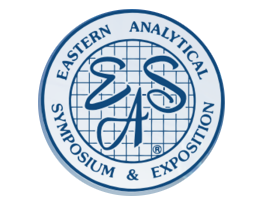One-Day Course
Mr. Gregory Martin, Complectors Consulting, Pottstown, PA
COURSE DESCRIPTION
Dissolution testing is used to demonstrate the performance of drug products throughout the product lifecycle. This highly interactive course is designed to assist both new and seasoned professionals with an interest in dissolution to design, develop, validate and troubleshoot dissolution methods, with your particular needs in mind. We will show how to create an Analytical Target Profile, which defines the expectations for the method, then build a Method Development Decision Tree to address the ATP in an INTERACTIVE SESSION. Proceeding through Method Understanding and Validation, we’ll demonstrate how this Method Lifecycle concept can be used iteratively during the evolution of the product from early to late stage development, through changes and transfer, to compendial monograph and generic products. Of course, this will also require discussion on establishing specifications and comparing dissolution data.
The course will also provide some very valuable, practical information on dissolution instrument qualification, resource-sparing approaches to validation and troubleshooting some issues commonly encountered with dissolution. Attendees are strongly encouraged to ask questions or present challenges throughout the course.
Upon completion of the course the learner should be able to:
1) Develop a dissolution method for a pharmaceutical dosage form, appropriate to the stage of development, using the target product profile and drug substance solubility data.
2) Validate a dissolution method in a manner consistent with the intent of the method.
3) Evaluate changes in dissolution profiles and determine probable root causes and potential solutions.
4) Understand the basic principles and application of correlating dissolution and in vivo data and setting specifications.
5) Locate the appropriate regulatory or compendial documents which may be pertinent to the situation under evaluation, including those related to dissolution method development and dissolution instrument qualification.
WHO SHOULD ATTEND
Chemists (Research, Quality Control, and CRO; Human, Veterinary or Generic) involved with dissolution method development or testing and their managers, formulators who rely on dissolution data and regulatory affairs/CMC personnel responsible for filings involving dissolution.
TOPICS
1. What is the Purpose of the Dissolution Method?
2. History of Dissolution and the Compendial Apparatus
3. A Practical Approach to Method Development Using a QbD Approach to Method
Lifecycle
* Practical Exercise: Method development decision tree based on analytical target profile
4. Validation of Dissolution Methods Using a Phased Approach
* Practical Exercise: Craft Guideline for Dissolution Method Validation
5. Method Troubleshooting
* Practical Exercise: Craft Guideline for Dissolution Troubleshooting
6. Regulatory and Compendial Documents
* Dissolution Instrument Qualification
7. Questions and Discussion
ABOUT THE INSTRUCTOR
Mr. Greg Martin is President of Complectors Consulting which provides consulting and training in the area of Pharmaceutical Analytical Chemistry. Mr. Martin has over 25 years’ experience in the pharmaceutical industry and was Director of Pharmaceutical Analytical Chemistry (R&D) for a major PhRMA company for a number of years. He has particular interest in QbD/Lean approaches to dissolution testing, impurity methods, method lifecycle
(development/validation/transfer) and instrument qualification, and is passionate about using good science and sound logic to achieve high quality results, consistent with cGMPs, while minimizing resources. He has volunteered for the USP for over 10 years, and currently serves as Vice Chair of the General Chapters – Physical Analysis Expert Committee, and serves on Expert Panels on Validation and Verification, Use of Enzymes for Dissolution Testing of Gelatin Capsules and Residual Solvents. He was also Chair of the AAPS In Vitro Release and Dissolution Testing Focus Group.

